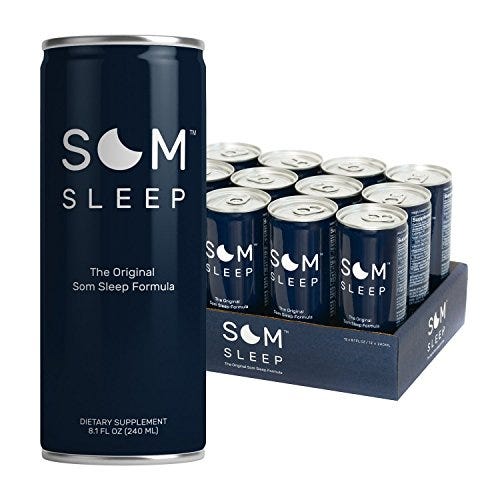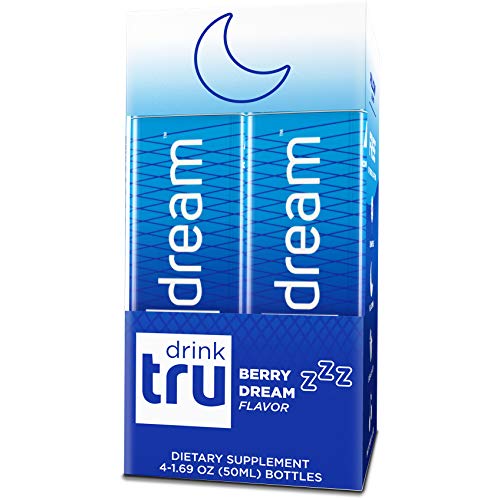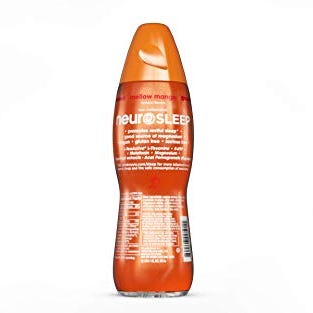These Anti-Energy Drinks Promise to Help You Get to Sleep Faster
You don’t need science to tell you how much one night of bad sleep can mess you up. One look in the mirror tells you all you need to know.
But the science is convincing. Your concentration and memory are diminished. Your sex life might take a hit. You routines— from bowel movements to hunger—are disrupted. Interrupted sleep may also raise your risk of Alzheimer’s long-term.
Fitbit has tracked more than 9 billion nights among its users since 2015. The data shows that bedtimes vary by 64 minutes a night on average—over an hour—though people who follow a routine sleep longer. Because we tend to have more control over our bedtime than our wake-up time, sleeping longer usually means sleeping earlier. And for many people sleeping earlier means manipulation in the form of sleep aids—one of the world’s fastest growing retail categories, predicted to reach $101.9 billion by 2023. That includes prescription drugs, but it also things like personalized pillows and sleep lotions. Mattresses and pills. Smart beds and even sleep robots. And, now, sleep drinks.
The Anti-Energy Drink

There’s a bright-orange, shampoo-looking bottle of Neuro Sleep, for instance, on the shelf at Target. There’s also Tru Sleep Drink Shot. But the most interesting and promising might be Som Sleep, a beverage available at GNC and even some grocery stores.” It comes in four-packs of tall blue cans oddly reminiscent of energy drinks. It’s for “people to go from 100 to zero,” as Rob Bent, Som’s co-founder, puts it. It’s the anti-Red Bull.
The premise is simple: Crack a can of Som 30 minutes before you’re ready to sleep. The active ingredients break down along three lines—the first tier is nutritional support, in the form of magnesium and Vitamin B6, which are thought to aid the sleep process, but most studies on this connection have been small and focused primarily on the elderly. The second group of ingredients aims to relax you, with L-Theanine (found in tea leaves) and GABA, a neurotransmitter related to sleep. Finally, there’s melatonin, a hormone that plays a role in helping you fall asleep and maintain a normal sleep-wake cycle.
The idea, according to Bent, is not to knock you out, producing the kind of sleep that leaves you feeling groggy the next day. It’s to ease you into the sleep process. That’s supposed to leave you waking up more refreshed, like you’ve had normal, restful sleep.

It took about a year for them to make the Som concept a reality, Bent says, as they tweaked the original concept. There were basic customer-appeal questions. Should it be carbonated? What should it taste like? How much water should it include? So they experimented, getting feedback from a small group of early testers.
Taste and marketing, though, wouldn’t matter much if Som didn’t work. “We wanted something that was safe and efficacious,” Bent says, “but it quickly became apparent that sleep issues are highly variable.” (Safety is largely the company’s responsibility, since as a nutritional supplement Som is not regulated by the Food and Drug Administration. It is certified to contain no unsafe contaminants by health industry watchdog NSF International.
Many of Som’s competitors, like NeuroSleep and TruSleep, also contain similar ingredients, most of which can be taken in other ways, from pills to gummies. One way that Som has differentiated itself, however, is with a counterintuitive marketing strategy. Marks describes the company consciously aiming at the energy drink market, with a familiar look and taste. But in much the same way Red Bull aligned itself with extreme athletes, he says, Som is trying to expand the market for sleep drinks.
The Problem With Optimization
“Pro athletes spend a lot of time not sleeping and in sleep-deprived states,” Marks says, which some research supports. So the company began reaching out to athletes and trainers, getting the product into their hands. Which is great from a marketing perspective, but it’s not like athletes are immune to hokum, either. (See: Brady, Tom.) The company started about 13 months ago, Marks says, and now Som is used by more than 60 teams in the NFL, NBA, and MLB; their advisors include nutritionists and performance directors for professional sports teams. Keith D’Amelio, Nike’s director of performance, is an advisor, as is Jordan Mazur, director of nutrition for the 49ers. Which all sounds great, but it begs the question: Can a “sleep drink” actually work?

It just might, but as drinks like Som carve out this new white space in the sleep aid category, they’re still borrowing from their predecessors. “To be honest, these ingredients are very common,” says Deirdre Ann Conroy, a sleep psychologist and associate professor at the University of Michigan, where she’s treated insomniacs for about 15 years. Conroy focuses on the psychology and behavior of sleep as much as the physiology.
That familiar feeling of a racing mind that won’t let you sleep, she says, can also be treated with behavioral therapy, including exercises like writing down sleep-related anxieties. Confronting what’s keeping you awake, in other words, is often healthier than imagining you can go from harried, everyday life into deep, restful sleep.
Conroy has patients taking similar supplements, and suggests some of their perceived effectiveness may be as much about changing behavior as about tweaking the body. “Maybe these supplements are actually affecting the physiology of the patient,” she says, but points out that by drinking a Som, you’re also doing what you might not have been doing before: committing to a wind-down before sleep. “So yeah,” she says, “I could see it being very helpful.”
The Limitations of Sleep Aids
There’s often a disconnect between what we need for better sleep—routine, commitment, attentiveness—and what we actually do when it’s time to rest. Marks describes pitching Som at people who consider themselves “executive athletes,” with the mindset of “I need to treat my body like I’m an athlete, because otherwise I can’t do my job.”
But looking at sleep as something to “optimize” may be the wrong mindset; it’s putting a band-aid on a bigger problem. (Conroy seems ambivalent about supplements, saying, “If it helps them…”)
Meanwhile, Som is expanding the market for its sleep drink. Marks says it’s in around 1,600 stores already, and he wants to have it in 8,000 by the end of the year. Right now, it’s selling well, although Som won’t disclose any figures to back up that claim. “If we can get just one person not taking Ambien or Xanax,” Marks says, “that’s great.” It probably is a healthier] option than some over-prescribed medications, though probably not better than consciously changing our behaviors for better sleep. Although for most of us that’s probably a pipe dream.
Source: Read Full Article


